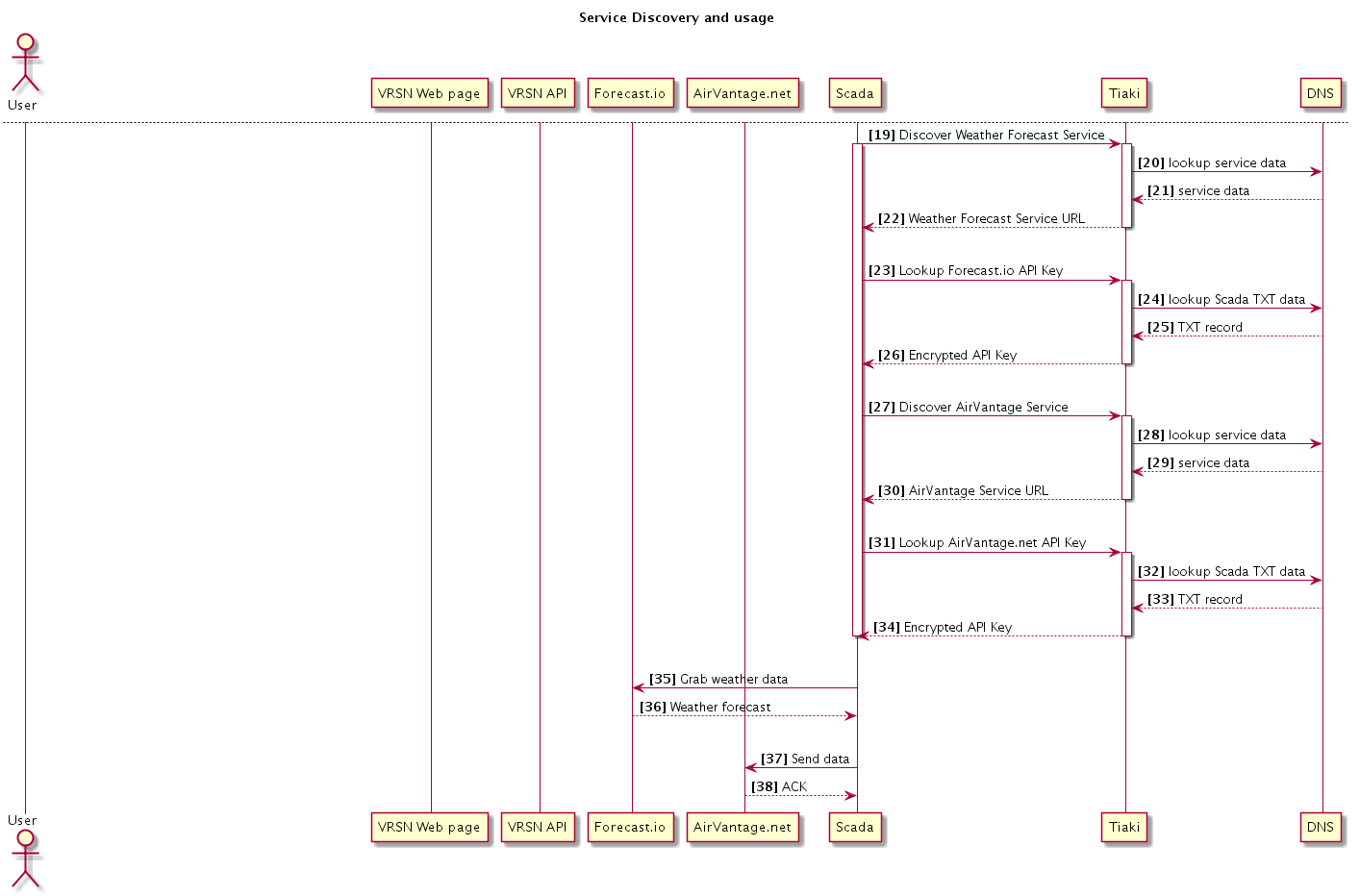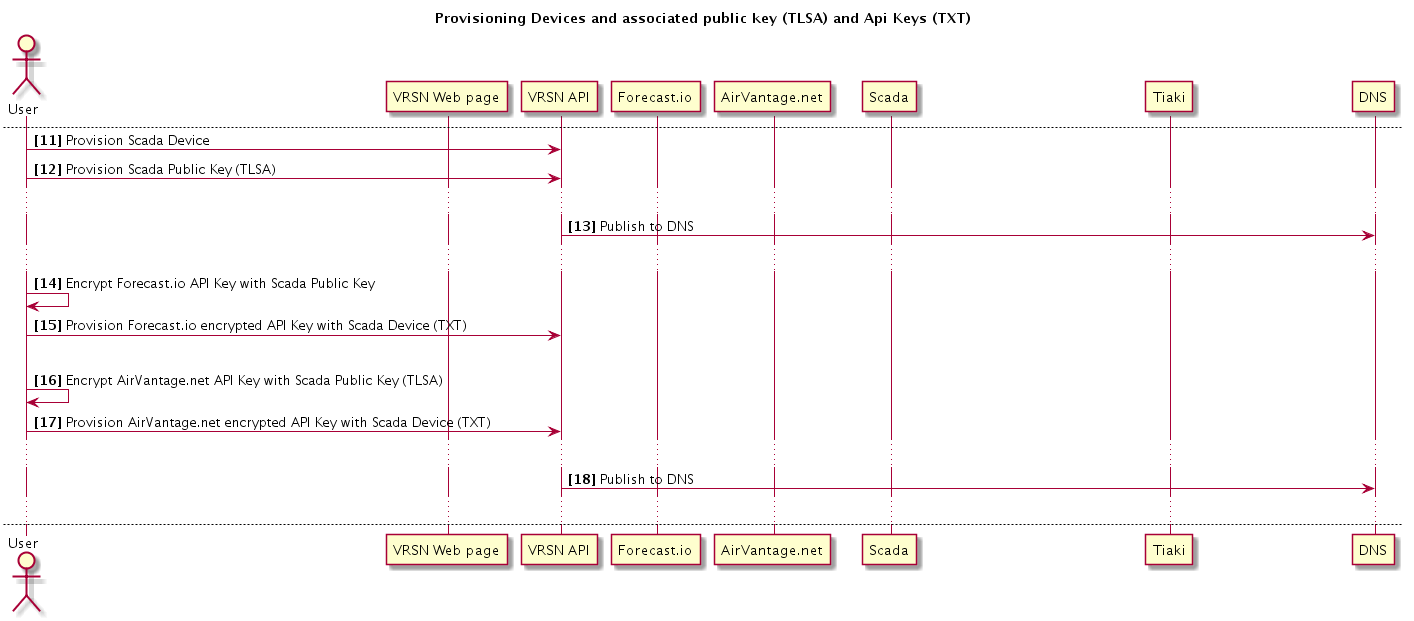Notice: This Wiki is now read only and edits are no longer possible. Please see: https://gitlab.eclipse.org/eclipsefdn/helpdesk/-/wikis/Wiki-shutdown-plan for the plan.
Difference between revisions of "Eclipse Unconference France 2015/Tiaki Hackathon"
m (Rpiccand.verisign.com moved page Eclipse Unconference France 2015/Kiaora Hackathon to Eclipse Unconference France 2015/Tiaki Hackathon: Changed project name) |
|||
| (3 intermediate revisions by the same user not shown) | |||
| Line 1: | Line 1: | ||
This document explains the proposed work flow for the Eclipse Hackathon session. | This document explains the proposed work flow for the Eclipse Hackathon session. | ||
| − | The idea is to have Eclipse | + | The idea is to have Eclipse SmartHome discover available services using Tiaki (DNS-SD), connect to those services, and compute some values and push data to AirVantage. |
| − | Before | + | Before SmartHome can actually start discovering services and use them, it is necessary to sign-up for those services ... |
| − | As describe below, | + | As describe below, SmartHome user would register with forecast.io (weather forecast), AirVantage (data platform) and the Verisign API (allows to easily provision service information in DNS). |
[[File:1._signing_up.png]] | [[File:1._signing_up.png]] | ||
| Line 14: | Line 14: | ||
| − | Ready for discovery ... | + | Ready for discovery ... SmartHome can use Tiaki (DiscoveryLibs) to discover services and eventually connect to them. Steps 23 to 26 and 31 to 34 are not required yet. The next section explains how to encrypt and provision the API Keys. |
[[File:4._service_discovery.png]] | [[File:4._service_discovery.png]] | ||
| − | + | As of now, using Tiaki, SmartHome could discover the services registered under its domain name. To connect to those services, it uses the API Key that was created when the user has signed up for the service. In order to avoid having to send the API key to SmartHome, we could do the following: | |
| − | + | - generate a public/private key pair for SmartHome | |
| − | + | ||
| − | As of now, using | + | |
| − | - generate a public/private key pair for | + | |
- publish the public key in DNS (using Verisign API) | - publish the public key in DNS (using Verisign API) | ||
| − | - encrypt the API key with the | + | - encrypt the API key with the SmartHome public key and push it do DNS |
| − | - let | + | - let SmartHome retrieve the the encrypted API Key from DNS and decrypt it |
- connect to the service | - connect to the service | ||
[[File:3._adding_devices_and_keys.png]] | [[File:3._adding_devices_and_keys.png]] | ||
Latest revision as of 09:18, 19 June 2015
This document explains the proposed work flow for the Eclipse Hackathon session.
The idea is to have Eclipse SmartHome discover available services using Tiaki (DNS-SD), connect to those services, and compute some values and push data to AirVantage.
Before SmartHome can actually start discovering services and use them, it is necessary to sign-up for those services ...
As describe below, SmartHome user would register with forecast.io (weather forecast), AirVantage (data platform) and the Verisign API (allows to easily provision service information in DNS).
Now that the user has signed up for the services, he can use the Verisign API to provision the services to be discovered. [TODO add URL to online documentation here]
Ready for discovery ... SmartHome can use Tiaki (DiscoveryLibs) to discover services and eventually connect to them. Steps 23 to 26 and 31 to 34 are not required yet. The next section explains how to encrypt and provision the API Keys.
As of now, using Tiaki, SmartHome could discover the services registered under its domain name. To connect to those services, it uses the API Key that was created when the user has signed up for the service. In order to avoid having to send the API key to SmartHome, we could do the following: - generate a public/private key pair for SmartHome - publish the public key in DNS (using Verisign API) - encrypt the API key with the SmartHome public key and push it do DNS - let SmartHome retrieve the the encrypted API Key from DNS and decrypt it - connect to the service




